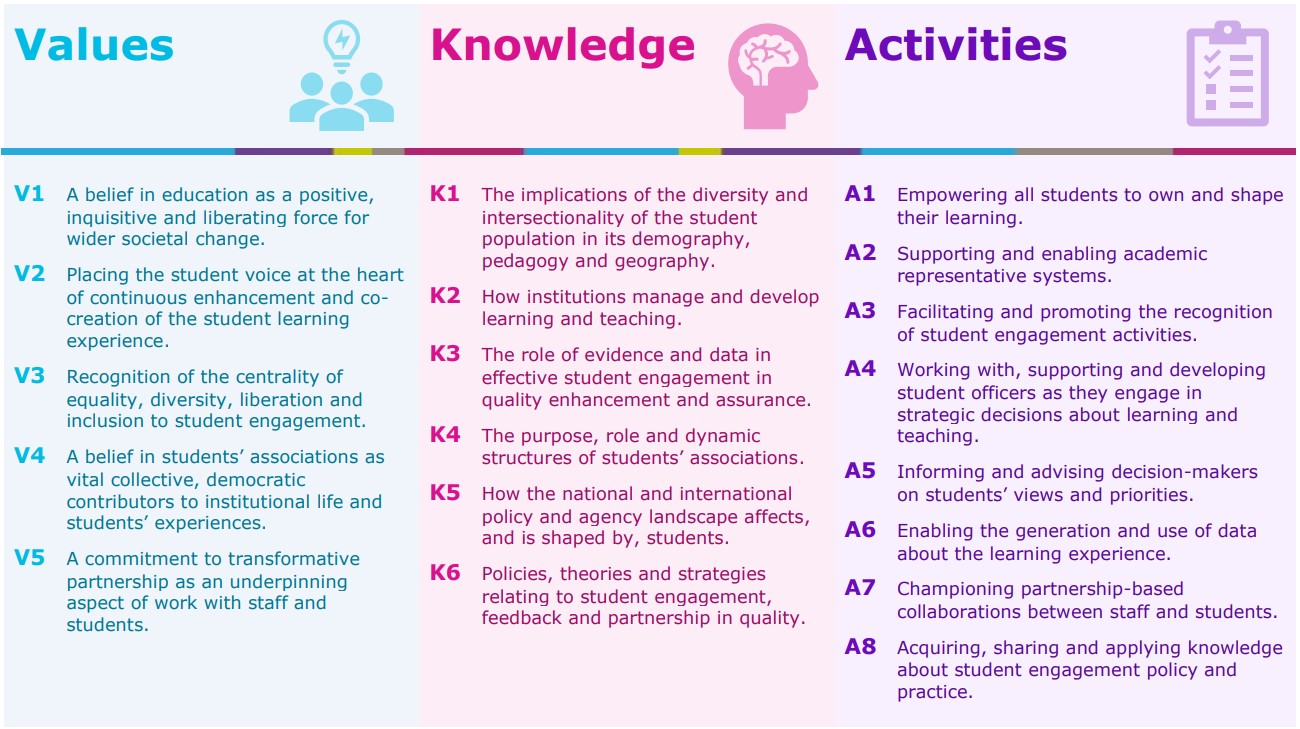It hopefully goes without saying that student engagement is one of the underpinning features of education.
Introduce yourself as a student engagement coordinator, however, and not everyone will fully understand what you mean.
For many in our sector, jobs can be conveyed in simple terms. Lecturer, librarian, secretary, estates manager or accountant require no significant explanation for a lay person. It’s at least partly due to that clarity and recognisability (and also of course the sheer numbers in these various disciplines) that so many roles in education are easy to capture in professional frameworks and recognition schemes.
Pity those of us working in student engagement in quality, however, like me and my colleagues in Sparqs, students’ union staff managing rep systems, or quality administrators organising surveys and other feedback processes.
We sometimes struggle to capture what we do in a zingy soundbite, and such practitioners are often the only people doing precisely that job in their institution. Personally, I always dread that innocent question about what my job is that occasionally crops up at a dinner party, in the pub, on a train or wherever else I might get chatting to random strangers.
To try to dig into this, we posed some questions earlier this year at a meeting of our Student Engagement Staff Network, where holders of these hard-to-explain jobs in Scotland get together a to share practice and enjoy the company of those few likeminded professionals who truly understand what they do for a living.
We firstly posed that classic dinner party question, and then asked participants to describe the values, knowledge and activities that shaped their jobs. From that, a working group of willing volunteers helped to harmonise the data into a coherent document: sparqs’ new professional standards framework for student engagement.

sparqs aims to use this framework to help promote the understanding and articulation of posts that manage or support the engagement of students in quality. We also aim to publish a series of accompanying resources, starting later this summer with a guide to using the framework to create or reshape a student engagement job description, and we will follow that with a toolkit for professional development activity in such roles. In the future, we might consider using the framework for badging or accreditation. We’d love to hear of other potential applications of the framework that readers can think of.
We’re all student engagement practitioners
Of course, engaging students is not the sole domain of those with “student engagement” in their job titles. More or less any staff involved in the support, delivery or management of learning and teaching can claim to somehow engage students in the shaping of that learning. If you’re a lecturer hearing students’ ideas about a course, a head of department examining student feedback data, a registrar working with students’ union officers to shape a policy, or a committee clerk inducting a new student member, then you’re doing student engagement in quality. sparqs hopes that the framework can be a useful basis for reflection for all these staff and more.
Even if student engagement is not your core function, most academic or academic-related colleagues will relate to at least some of the framework. There will be few staff in institutions reading this article who won’t know something basic about their students’ association or union (V4, K4), recognise the diversity of student voices that must be heard (V3, K1, A1), or at least occasionally have something to do with student feedback (A1, A5, A6).
If the framework helps to prompt you and your colleagues to think afresh about your roles or to become more aware of just how much student engagement you do, then it will be a useful learning exercise – and a reminder that student engagement is everyone’s responsibility.
Such reflections might even provide you with an interesting new answer to that dinner party question.













